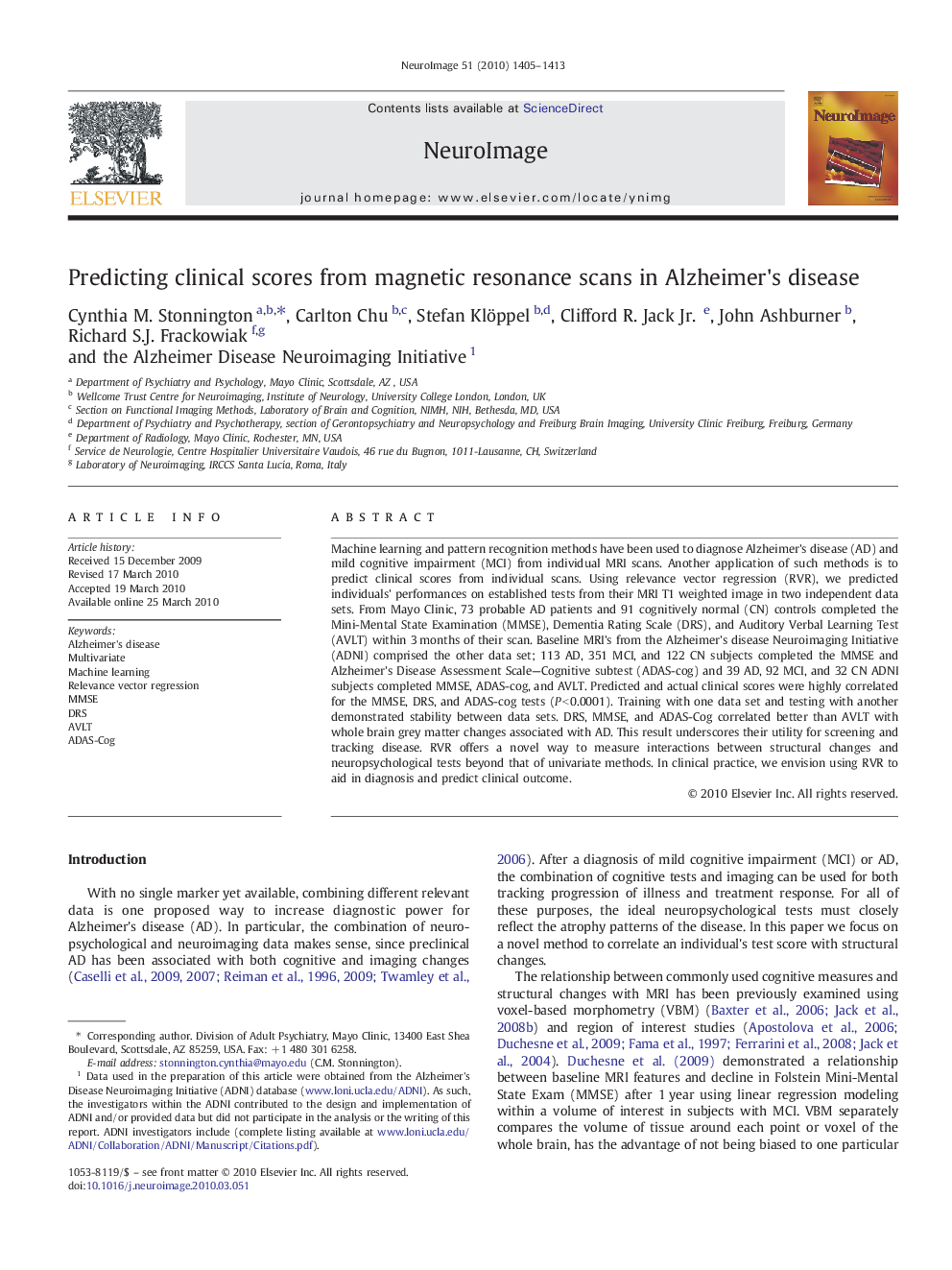| Article ID | Journal | Published Year | Pages | File Type |
|---|---|---|---|---|
| 6035819 | NeuroImage | 2010 | 9 Pages |
Abstract
Machine learning and pattern recognition methods have been used to diagnose Alzheimer's disease (AD) and mild cognitive impairment (MCI) from individual MRI scans. Another application of such methods is to predict clinical scores from individual scans. Using relevance vector regression (RVR), we predicted individuals' performances on established tests from their MRI T1 weighted image in two independent data sets. From Mayo Clinic, 73 probable AD patients and 91 cognitively normal (CN) controls completed the Mini-Mental State Examination (MMSE), Dementia Rating Scale (DRS), and Auditory Verbal Learning Test (AVLT) within 3Â months of their scan. Baseline MRI's from the Alzheimer's disease Neuroimaging Initiative (ADNI) comprised the other data set; 113 AD, 351 MCI, and 122 CN subjects completed the MMSE and Alzheimer's Disease Assessment Scale-Cognitive subtest (ADAS-cog) and 39 AD, 92 MCI, and 32 CN ADNI subjects completed MMSE, ADAS-cog, and AVLT. Predicted and actual clinical scores were highly correlated for the MMSE, DRS, and ADAS-cog tests (PÂ <Â 0.0001). Training with one data set and testing with another demonstrated stability between data sets. DRS, MMSE, and ADAS-Cog correlated better than AVLT with whole brain grey matter changes associated with AD. This result underscores their utility for screening and tracking disease. RVR offers a novel way to measure interactions between structural changes and neuropsychological tests beyond that of univariate methods. In clinical practice, we envision using RVR to aid in diagnosis and predict clinical outcome.
Keywords
Related Topics
Life Sciences
Neuroscience
Cognitive Neuroscience
Authors
Cynthia M. Stonnington, Carlton Chu, Stefan Klöppel, Clifford R. Jr., John Ashburner, Richard S.J. Frackowiak, the Alzheimer Disease Neuroimaging Initiative the Alzheimer Disease Neuroimaging Initiative,
